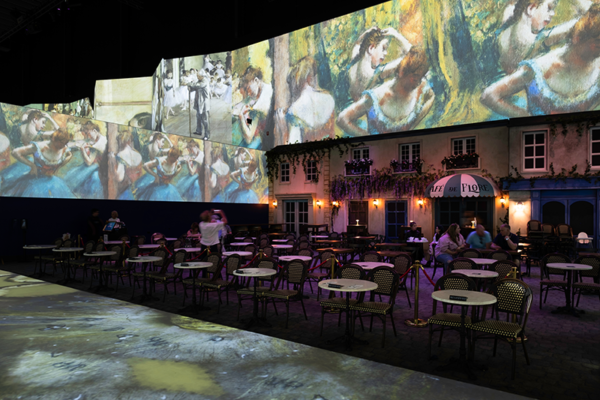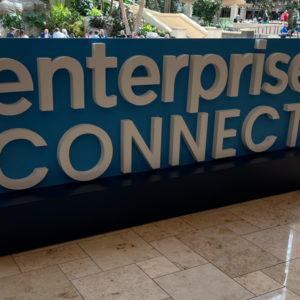In recent years, the audiovisual (AV) industry has witnessed a growing trend that is blurring the lines between residential and commercial solutions. I’ve written about it and argued with various industry pundits. Including industry associations. Resimercial is for real. But that term has sparked both enthusiasm and controversy among professionals. Resimercial, a combination of residential and commercial, refers to the convergence of AV technologies and design elements typically associated with homes and light commercial spaces such as bars, restaurants, and small offices. A
Home and away
Colin Clark, VP of Product at Russound, defines resimercial as an industry technical term used to describe products that could be deployed in both residential and light commercial applications. While the term may not be familiar to homeowners, it serves as a valuable tool for dealers and installers, indicating that a product’s capabilities extend beyond the residential realm.
“Resimercial can be a helpful education term for dealers, especially new dealers,” Clark explains. “When they see a product labeled as ‘resimercial,’ it helps them identify that it isn’t a product that is purely residential in scope and could be used for a commercial job. It opens up job opportunities when used with the dealer/installer audience.”
WFA with Resimercial
One of the most significant opportunities in light commercial is in conferencing. Video conferencing, UC, whatever you call it, is being installed in homes as well as offices. For those of you who work at home and in an office, don’t you want the same quality in both places? Having it be obvious you are WFH isn’t ideal. Whether that is audio or video, both should be high-quality regardless where you’re working that day. Commercial AV gear can be, and is being, installed in homes and the office.
On the other hand, using residential products in commercial settings is less common but not unheard of. Installers often rely on their relationships with clients and their familiarity with specific products when deploying them in light commercial projects.
Pro AV in Residential

Tim Stevens, Territory Sales Manager at the Nutech Group, views resimercial as the blending of technologies typically used in residential installations with those used in light commercial installations. He points out that small businesses are enhancing their services and defining spaces with AV solutions such as video walls, videoconferencing, and improved audio systems.
“Homes boast an array of displays, cameras, and audio zones, all supported by a secure and robust networking infrastructure akin to what’s found in commercial projects,” Stevens says. “This crossover of residential and commercial technologies has created a rapidly growing resimercial market where residential installers can use their AV expertise.”
DIY or Resimercial
Entering the light commercial market comes with its own set of challenges. Installers must consider factors such as access, network administration, and the varying needs of unknown users in commercial environments.
Taft Stricklin, Sales Team Manager at Just Add Power, suggests that some in the industry view the term resimercial as describing basic commercial projects done by residential installers with mostly residential products. “I recently saw a retail store install and the products the integrator installed were mostly DIY products for networking and music. My first thought was the word, ‘resimercial,'” Stricklin shares.
Despite the debates surrounding the term, the resimercial trend continues to gain momentum. Integrators are increasingly taking on light commercial projects, leveraging their expertise in residential AV to create inviting and functional spaces in businesses.
Performance Considerations

Seth Johnson, Software Development Manager at Blackwire Designs, highlights the opportunities for both residential and commercial integrators in the resimercial space. “We’ve seen countless residential companies bring on board enterprise-grade networking and video products into homes. While these products may cost more and provide fewer cutting-edge features, their reliability and performance over time saves the integrator and homeowner,” Johnson explains.
Bill Hensley from RTI emphasizes that the focus should be on specifying a system that addresses the customer’s needs, regardless of whether a product is typically used in residential or commercial settings. “Whatever the project, whatever the vertical, the successful integrator is specifying products that best fit the need, not saying ‘this one should work anywhere,'” Hensley advises.
Aesthetics of AV
Joe Whitaker from Origin Acoustics proposes a redefinition of resimercial, focusing on blending the lifestyle and styling of residential technologies into commercial settings. “Turning a boring waiting room into a residential-style lounge is an example. Making spaces more about the people than the purpose should be what resimercial is all about,” Whitaker suggests.
As the AV industry continues to evolve, the resimercial trend is poised for growth. Integrators who can successfully navigate the challenges and opportunities presented by this blurring of lines will be well-positioned to thrive in an increasingly diverse market. By understanding the unique requirements of both residential and commercial environments and selecting products that best fit the needs of each project, integrators can deliver innovative and impactful AV solutions that enhance the user experience, whether at home or in a light commercial setting.
Resimercial or Light Commercial
The light commercial revolution is not just about the convergence of technologies; it’s about creating spaces that prioritize the well-being and comfort of the people who inhabit them. As the industry continues to embrace this trend, we can expect to see a more seamless integration of residential and commercial AV solutions, ultimately leading to more engaging, functional, and inviting environments in both homes and businesses alike.









